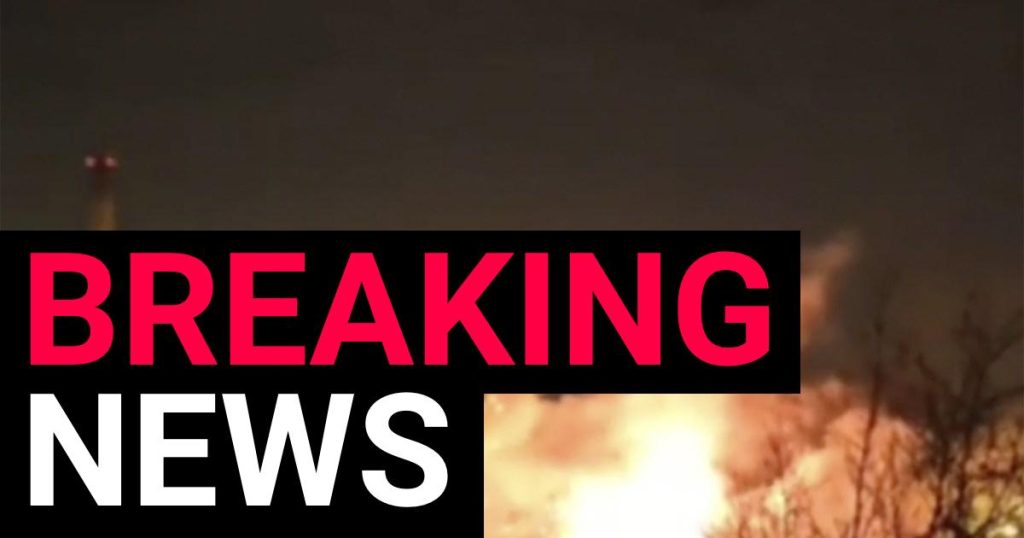Paragraph 1: NATO Scramble Amidst Russian Bombardment Near Polish Border
NATO was compelled to scramble its warplanes in response to a Russian bombardment near Ukraine’s border with Poland. Russian Tu-22 and Tu-95 strategic bombers targeted vital energy infrastructure in Ukraine during the peak of winter’s cold. This aggressive action prompted heightened alert levels within NATO forces, particularly in Poland. Poland’s operational command headquarters confirmed the scrambling of fighter jets and the activation of ground-based air defense and radar reconnaissance systems to their highest state of readiness. These defensive measures underscored the gravity of the situation and NATO’s commitment to safeguarding its member states in the face of Russian aggression.
Paragraph 2: The Context of the Russian Attack
The Russian missile and drone bombardment occurred amidst the ongoing conflict in Ukraine, intensifying the humanitarian crisis and highlighting the precarious security situation in the region. Targeting energy facilities during the coldest weeks of winter further exacerbated the suffering of the Ukrainian population. This tactic underscores Russia’s strategy of disrupting civilian life and exerting pressure on the Ukrainian government. The proximity of the attacks to the Polish border raised concerns about the potential for escalation and the spillover of the conflict into NATO territory.
Paragraph 3: NATO’s Response and Regional Security Concerns
NATO’s swift response to the Russian bombardment demonstrated its commitment to collective defense and its determination to deter further aggression. The scrambling of fighter jets and the activation of air defense systems served as a clear signal to Russia that NATO was closely monitoring the situation and prepared to defend its allies. The incident highlighted the strategic importance of Poland and its vulnerability as a frontline state bordering Ukraine. The attack underscored the need for increased vigilance and enhanced security measures in the region to prevent any further escalation of the conflict.
Paragraph 4: Implications for the Ukraine Conflict and International Relations
The Russian bombardment and NATO’s subsequent response underlined the escalating tensions between Russia and the West. The attack underscored Russia’s willingness to employ disruptive tactics and target civilian infrastructure, further complicating the prospects for a peaceful resolution to the conflict. The incident also highlighted the crucial role of NATO in maintaining regional stability and deterring further Russian aggression. The potential for miscalculation and unintended escalation remained a significant concern, emphasizing the need for continued diplomatic efforts to de-escalate the situation.
Paragraph 5: Humanitarian Crisis and International Condemnation
The Russian attack on Ukraine’s energy infrastructure amidst freezing winter temperatures worsened the already dire humanitarian situation in the country. The targeting of civilian infrastructure drew widespread international condemnation, with many countries calling for an end to the violence and a resumption of diplomatic negotiations. The attack highlighted the devastating impact of the conflict on the Ukrainian people and the urgent need for increased humanitarian assistance. The international community expressed growing concern over the potential for further escalation and the widening humanitarian crisis.
Paragraph 6: The Importance of Continued Vigilance and Diplomatic Efforts
The Russian bombardment near the Polish border served as a stark reminder of the ongoing conflict in Ukraine and the precarious security situation in the region. The incident underscored the importance of continued vigilance and the need for NATO to maintain a credible deterrent against further Russian aggression. The attack highlighted the urgency of finding a diplomatic solution to the conflict and preventing further escalation. The international community must work together to address the humanitarian crisis, support Ukraine’s sovereignty and territorial integrity, and promote a peaceful resolution to the conflict. The incident also emphasized the need for continued investment in defense capabilities and the strengthening of alliances to deter aggression and maintain regional stability.




